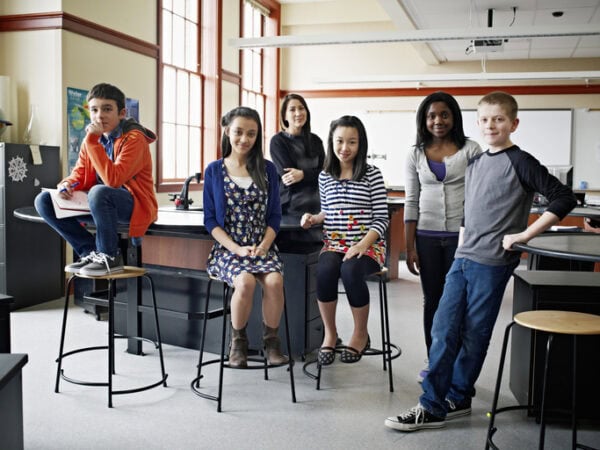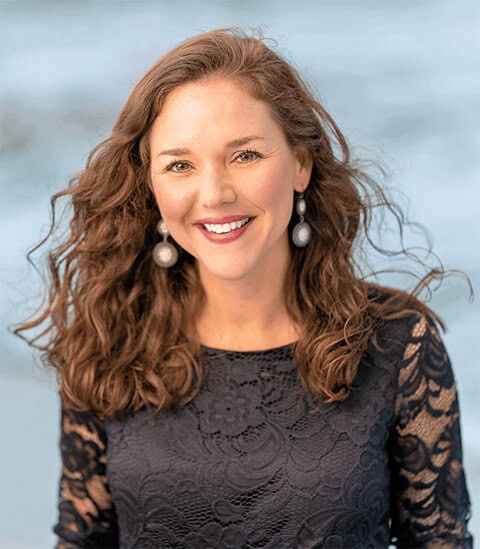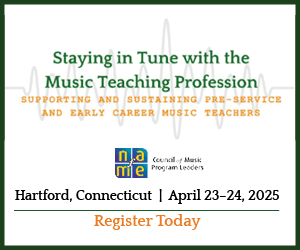/ News Posts / Build Confidence in Yourself and Others
Build Confidence in Yourself and Others
By NAfME Member Lori Schwartz Reichl
“Believe in yourself!
Have faith in your abilities! Without a humble but reasonable confidence in your own powers you cannot be successful or happy.”— Norman Vincent Peale
Young people are navigating a time in their lives when figuring out who they are, what they believe, and where they fit in our world can be uncomfortable and challenging. It is important to remind them that confidence does not magically appear. Instead, it is built through experiences, relationships, and self-perception. Providing children with the education, resources, role models, and strategies for creating and maintaining confidence is crucial. However, children are not the only ones who require confidence.
Confidence Is Essential
Confidence is essential at every stage of life. Adults need confidence, too. Confidence enables individuals to face challenges, take risks, and embrace new opportunities. Demonstrating confidence can foster better decision-making, improve relationships, and enhance both personal and professional growth. Yet, confidence can fluctuate throughout life as different experiences can impact it. That is why it is vital to continually build and sustain confidence through support, reflection, and research.
During my life, I have been an athlete, coach, musician, conductor, educator, author, speaker, and entrepreneur. As a caregiver and parent, I recognize the importance of these roles and their impact on my own two children, in addition to the students I coach, teach, or lead of all ages. Each role requires confidence—a skill that, even at the age of 46, I am still building each day—through the help of others. Creating and maintaining confidence in ourselves and others can be difficult at all ages, stages, and phases of life. But it is not impossible! Support is necessary. Confidence is contagious! Let us help one another to be confident!

Photo by Alysha Rosly on Unsplash
During the summer of 2025, Making Key Changes will launch The Confidence Camp. When I first announced the camp, I was shocked at the number of adults who commented that they would like to attend. Many shared their desire to have an adult version of the camp! Confidence is key to helping anyone of any age to navigate the world with a strong sense of self-worth, resilience, and the ability to chase one’s dreams. Nurturing a unique and supportive space where we are encouraged to be ourselves and where others feel empowered to be themselves is essential. This inspiration can help us to pursue our passions and believe in our abilities and self-worth. Confidence is crucial, and it can be cultivated.
The 5 Key Changes Needed to Build Confidence
Building and maintaining confidence is an ongoing process that involves mindset shifts and practical habits. Here are five key changes you can make to cultivate confidence in yourself and others:
Key Change #1: Provide Encouragement & Feedback
Sincere compliments, constructive feedback, and recognition of effort motivate continued growth and help people recognize our strengths. When we feel acknowledged and valued, it reinforces our belief in our abilities and potential and encourages us to keep putting in the effort. Positive reinforcement creates an environment where individuals feel safe to take risks, learn, and grow. In episode #53 Beat Burnout of the Making Key Changes podcast, I discussed that a lack of feedback is a leading cause of burnout. When we use language with others that highlights strengths, potential, and growth rather than focusing on outcomes alone or criticism, we help to build confidence in each other.
Key Change #2: Encourage Independence
Allow people to make their own decisions, face challenges, and solve problems. This can be a difficult step as a teacher, parent, colleague, partner, relative, or friend. However, it is necessary for growth. Independence fosters a sense of accomplishment and self-reliance. By empowering responsibility, we give people opportunities to take on chores, tasks, and eventually jobs. Trusting one another to handle important matters boosts confidence.
Key Change #3: Listen & Validate Feelings
Sometimes, we simply need someone to listen to us without offering advice. Show empathy, acknowledge emotions, and validate one another’s feelings. This helps one another to feel understood and supported, which builds trust and self-esteem. Guidance can come once understanding is achieved.
Key Change #4: Celebrate Strengths
Helping one another identify what we are each good at doing or being allows confidence in our skills and abilities to emerge. This may enable us to embrace mistakes as a learning opportunity, too, as we realize that we are not defined by every mistake or misunderstanding. Celebrate one another’s strengths to feel more confident in applying them and learning from them.
Key Change #5: Be a Role Model
Show confidence in your own actions, skills, and talents—whatever they are—through dedication and determination. When others recognize us as being self-assured, it can inspire them to feel the same way.

Photo by Brett Jordan on Unsplash
Confidence Connections
Confidence can arise from connections as well. When we engage in thoughtful exchanges with others, it not only broadens our perspectives but also strengthens our understanding of who we are, what we believe, and what we can achieve. Thought partnerships allow ideas to be tested, refined, and supported, leading to personal and professional growth. As confidence builds through these interactions, it fosters an environment where creativity, collaboration, and innovation can flourish.
Confidence creates an environment of positivity and growth. When we believe in ourselves, it allows others to maintain this energy, inspiring them to feel more capable, courageous, and confident!
How are we making key changes to build confidence in ourselves and others? Listen to episode #59 of the Making Key Changes podcast, titled “Build Confidence In Yourself and Others” to unlock confidence all around you.
Learn more about THE CONFIDENCE CAMP, launching in Maryland for summer 2025!
Photo at top by Miguel Bruna on Unsplash
About the author:
NAfME member Dr. Lori Schwartz Reichl is the visionary thought leader of Making Key Changes. Her career began in music education where she learned the importance of a key change—a shift in the tonal center of a piece of music, often used to inject energy or produce significance. She eventually realized the necessity and impact of making key changes in many areas of her life and the desire to help others do the same.
Since transitioning out of one classroom as a public school teacher, Lori has uniquely created a global classroom for her work. She motivates organizations, teams, and individuals to reflect on their daily practices and offers actionable key changes to grow. She guides all contributors to create and maintain a shared vision in their communities, companies, classrooms, and careers. Together, they unlock their greatest potential in collaboration with those they love, serve, and lead.
Learn more about Dr. Lori Schwartz Reichl at MakingKeyChanges.com. Subscribe to her Making Key Changes weekly newsletter and listen to her weekly podcast.
Interested in reprinting this article? Please review the reprint guidelines.
The National Association for Music Education (NAfME) provides a number of forums for the sharing of information and opinion, including blogs and postings on our website, articles and columns in our magazines and journals, and postings to our Amplify member portal. Unless specifically noted, the views expressed in these media do not necessarily represent the policy or views of the Association, its officers, or its employees.
Published Date
April 1, 2025
Category
- Careers
- Lifelong Learning
Copyright
April 1, 2025. © National Association for Music Education (stg-nafmemu-nafme.kinsta.cloud)







